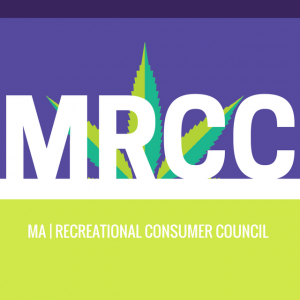TNMNews Interviews: Kamani Jefferson of the Massachusetts Recreational Consumer Council
 The National Marijuana News had a chance to speak with Kamani Jefferson of the Massachusetts Recreational Consumer Council (MRCC) to discuss marijuana legalization in Massachusetts and the upcoming start of commercial sales of cannabis this July. MRCC is a non-profit organization that has made it their mission to educate and ensure the safety of recreational cannabis consumers, businesses and the general public by working directly with the state government. Kamani is the president and one of the cofounders of MRCC and worked to have Questions 4 added to the ballot in 2016 which resulted in the legalization of adult-use cannabis in Massachusetts. He is is a registered lobbyist working diligently with the state government to help spread awareness of state policy and bridging the gap between consumers, businesses and the state government.
The National Marijuana News had a chance to speak with Kamani Jefferson of the Massachusetts Recreational Consumer Council (MRCC) to discuss marijuana legalization in Massachusetts and the upcoming start of commercial sales of cannabis this July. MRCC is a non-profit organization that has made it their mission to educate and ensure the safety of recreational cannabis consumers, businesses and the general public by working directly with the state government. Kamani is the president and one of the cofounders of MRCC and worked to have Questions 4 added to the ballot in 2016 which resulted in the legalization of adult-use cannabis in Massachusetts. He is is a registered lobbyist working diligently with the state government to help spread awareness of state policy and bridging the gap between consumers, businesses and the state government.
TNMNews: You said one of the main goals or missions of the Mass Rec Council was to ensure the safety of adult cannabis consumers. Can you expand on what you meant by ensuring their safety?
KJ: We ensure safety through community-oriented events in the Commonwealth and educating the general public on what’s going on with the industry currently. MRCC is a coalition of consumer advocates that are very vocal around research and social use. Massachusetts has the best schools in the world and a very vibrant Cannabis market in place so safety will naturally be apart of the movement.
TNMNews: As a registered lobbyist, how can you affect the legislative process to benefit the legalized cannabis market in Massachusetts?
 KJ: MRCC was successfully able to advocate for craft marijuana cultivator cooperative licenses and a secret shopper program during the draft regulation process. Lobbying is a fancy word for showing up and influencing legislation. Americans need to do more than voting to see changes in this country. As a lobbyist; you are a strategist who sees the power of voters, laws and politicians themselves. My infamous quote is “I never cared about politics till weed got legalized.”
KJ: MRCC was successfully able to advocate for craft marijuana cultivator cooperative licenses and a secret shopper program during the draft regulation process. Lobbying is a fancy word for showing up and influencing legislation. Americans need to do more than voting to see changes in this country. As a lobbyist; you are a strategist who sees the power of voters, laws and politicians themselves. My infamous quote is “I never cared about politics till weed got legalized.”
TNMNews: Boston’s Mayor Walsh was not in support of implementing the recreational marijuana market. What do you think has softened him to the idea and what else can be done to provide him a better understanding of how the legal cannabis market can benefit the people of Boston?
KJ: The mayor sees revenue. It’s really that simple. All the naysayers need education. Education is the only thing that can combat fear. The mayor also needs to feel political pressure from key voters and other politicians. When the dollars start rolling in it would be a smart move for him to fully embrace this. {We} will see.
TNMNews: Many counties, cities and towns in Massachusetts are putting a moratorium on allowing adult-use cannabis dispensaries within their borders. In your opinion why do you think they are putting those moratoriums in place and what can be done to have them open up to the idea?
KJ: Moratoriums come from fear. The fear of the unknown. The fear of changing the feel of the municipality. Again, education is important. Remind them of similar towns and counties in other legal states and visualize how they’re dealing with this industry. Community development and civic engagement is key at the local level. Many town meetings are the same conservative folks who don’t want anything in their backyards, not just Cannabis. Get as many proponents who live in the area out to be vocal and vote at these special elections. Many times these bans happen and {the} majority of the town didn’t even know about it.
TNMNews: Spreading awareness about the cannabis industry and its benefits is another one of the missions of the Mass Rec Council. How do you plan on educating the people, officials and businesses around the state?
KJ: Educated consumers make strong industries. We record every Cannabis Control Commission through our Facebook live and many municipal meetings across the state. We also attend any cannabis community friendly events around the Bay State as possible. We held an event in Western Mass with the mayor of Holyoke and this month we are hosting an event with a State Representative.
 TNMNews: The Massachusetts Cannabis Commission removed both social consumption lounges and delivery services from the implemented rules for 2018. Why do you think they pulled those additions that were originally approved?
TNMNews: The Massachusetts Cannabis Commission removed both social consumption lounges and delivery services from the implemented rules for 2018. Why do you think they pulled those additions that were originally approved?
KJ: The governor and key politicians at the state house lobbied against social use + delivery. These are the same folks who voted no on legalization. They have this “crawl before you walk” approach they want us to abide by. Many advocates and industry professionals alike can tell you these other markets exist in Massachusetts. They plan on bringing it back into serious discussion in October and adopting regulations on social + delivery February 2019. The fight isn’t over.
TNMNews: What kind of a turnout do you expect for the Massachusetts kickoff of adult-use sales on July 1st? Do you expect visitors from other states? Also, what kind of tax revenue do you expect the state to generate from cannabis sales in the first 6 months?
KJ: I am going to be brutally honest. We will be lucky to see 3 maybe 5 stores open in the whole state by July. The local level is beyond not ready for implementation. People from other states will absolutely come and will be disappointed. It’s going to be a slow but gradual roll-out into 2019. It’s hard to estimate the tax revenue but I would be shocked to see more than {$}100 million in the first six months. {$}50-75 million seems more logical due to municipality concerns.
TNMNews: Some states put marijuana tax revenue towards public education, others are saving a lot of the revenue in rainy day funds. What does Massachusetts plan on doing with tax revenue generated from adult-use cannabis sales?
KJ: Some of the tax revenue must go to the social equity program and community reinvestment into areas that were disproportionately harmed by the war on drugs. There’s also a public education program expected to come in the future that MRCC will have a watchful eye on.
TNMNews: Marketing within the cannabis industry is one of the largest challenges. What are the different ways that a Massachusetts dispensary can market its products?
KJ: I see events geared toward the adult-user as the best marketing tool in the industry currently. The movement is growing faster and bigger by the day. Many folks go to there local cannabis education event to get caught up to speed. When social use is added events will only grow.
TNMNews: Another major challenge for the cannabis industry is banking. Is Massachusetts planning to do anything to keep the industry from being too cash heavy?
KJ: The chairman of the Cannabis Control Commission mentioned the idea of starting a state-bank that could host Cannabis-related accounts. I also think credit unions will jump on this with the right businesses aboard. Specifically co-operatives and micro-businesses.
TNMNews: Do you have any predictions for what the future of the marijuana industry in Massachusetts will eventually look like?
KJ: There will be a mom and pop feel to Massachusetts. There will obviously be corporations but the start-up and craft markets thrive in this state. You’re going to see a lot of innovation. We are based in Cambridge and already have started dialogue with colleagues at Harvard + MIT. Massachusetts will set the standard for the east coast.
TNMNews: After your lobbying days are over for the cannabis industry, what your own plans for the future?
KJ: Social use and research really excites me. I also see how powerful media is and I may compete with you guys (just kidding :-). I do see myself in the cannabis lobby scene for awhile as this industry is all politics. The future is bright!
 We want to thank Kamani for spending the time with us and providing such well thought out answers. Link up with him on LinkedIn here. Commercial sales of cannabis begin on July 1st, 2018. Adults will be able to possess up to one ounce of cannabis at any particular time and can store up to 10 ounces of cannabis at their residence. Adult residents of Massachusetts can also grow up to 12 plants. The National Marijuana News will continue to keep a close eye on the Massachusetts cannabis industry and wish the best for the state and its new industry.
We want to thank Kamani for spending the time with us and providing such well thought out answers. Link up with him on LinkedIn here. Commercial sales of cannabis begin on July 1st, 2018. Adults will be able to possess up to one ounce of cannabis at any particular time and can store up to 10 ounces of cannabis at their residence. Adult residents of Massachusetts can also grow up to 12 plants. The National Marijuana News will continue to keep a close eye on the Massachusetts cannabis industry and wish the best for the state and its new industry.
If you are interested in becoming a member of the Massachusetts Recreational Consumer Council, please click here.
If you would like to donate to the Massachusetts Recreational Consumer Council, please click here.
Find out more about the Massachusetts Recreational Consumer Council here.
Facebook Comments
Tags
cannabis newsKamani Jeffersonlobbyistmarijuana legalizationMassachusetts Recreational Consumer Councilmassachusetts recreational marijuanaMRCC


